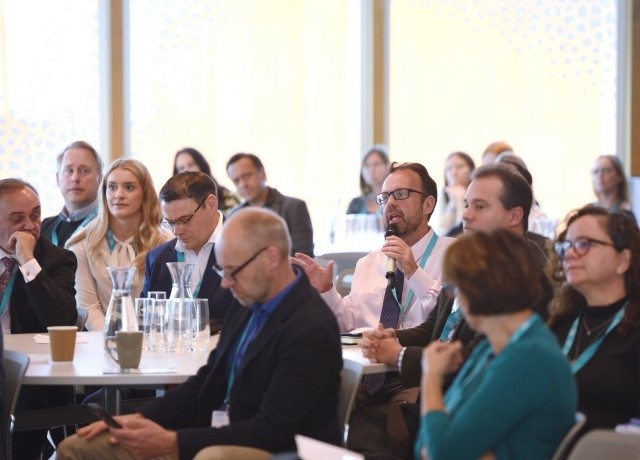
Abstract Guidelines
Presentation Format
Abstracts can be submitted for the following format types: a) Themed papers; b) Workshop/Panel discussion; and c) Video + poster presentation.
Themed papers:
This type of session is best suitable for reports on either a) completed research or scholarly work; or b) practice-based case studies (see knowledge focus below). Authors present summaries or overviews of their work, describing the essential features (related to purpose, methodologies, outcomes or product/project). The formal oral presentation of work should be limited to 15-20 minutes. Presentations are grouped according to topic or perspective into these themed sessions (which are between 60-90 minutes), with time provided after all of the presentations for Q&A and group discussion. Authors are welcome to include visual supports (paper handouts, powerpoint slides, or digital displays) to assist delivery of their oral presentation.
Workshop or panel discussion:
Workshop and panel discussion sessions are best suited to exploring in greater depth themes from multiple interdisciplinary perspectives or demonstrating particular procedures, skills, or techniques. Considerations for this format may include, for example: a workshop, demonstration, performance, staged conversation, debate, or extended panel dialogue with the audience. These sessions are scheduled for about 60-90 minutes and should be structured so that some explanatory or introductory information is provided, with ample time for audience interaction, participation and involvement.
Video + poster presentation:
This format is ideal for presenting preliminary results of research studies in progress or for practice-based projects that lend themselves to visual displays and representations. Displays may be posters, artwork, or other visual media. Each display should include a brief abstract of the purpose and procedures of the work. The video presentation should be pre-recorded to tell the narrative of the project or research and ahould be no more then 5 minutes in length. Space for the poster or exhibit will be provided by the conference, however, all materials must be organised by the presenter, including the poster and video, and any handouts or other appropriate materials. A digital version of the poster as well as the video will be published in the virtual conference platform during the event and for three months afterwards for delegates to view and share. Papers not selected for a themed paper or workshop/panel discussion but considered appropriate for a poster presentation will also be offered this opportunity, subject to meeting the themes of the Congress and minimum standards.
Knowledge Focus
All abstracts submitted should have a research, a practice or a theory focus.
Research focus
- Thesis statement: the hypothesis, research statement, statement of the problem or issue being explored.
- Methodology: brief overview of research method used to address the research question identified in the thesis statement. For the proposal, include information on the type of data collected (e.g. surveys, interviews, tests, literary analysis or critique, observations) but not on design, sampling, or data analyses techniques (these should be explained in the full paper).
- Results: the main findings of the study, resulting from the methods used.
- Conclusions and implications: what the results mean for the field of study or for society; relating this back to the thesis statement.
Practice (e.g. case study) focus
- Framework: the scholarly knowledge base – theoretical framework, previous research, or conceptual approach – upon which the practical application or project is based.
- Description of practical application: what was designed or developed, how was it implemented, in what setting, and with whom?
- Outcomes: what has been learned from the implementation; what strengths and weaknesses have been identified?
- Implications: what are the next steps or the implications for future practice or for society.
Theory focus
- Statement of the hypothesis, theoretical perspective, or philosophical idea being asserted.
- Relationship to existing theories or perspectives in the field.
- Contribution: how the proposed idea advances knowledge in the field or benefits society.



